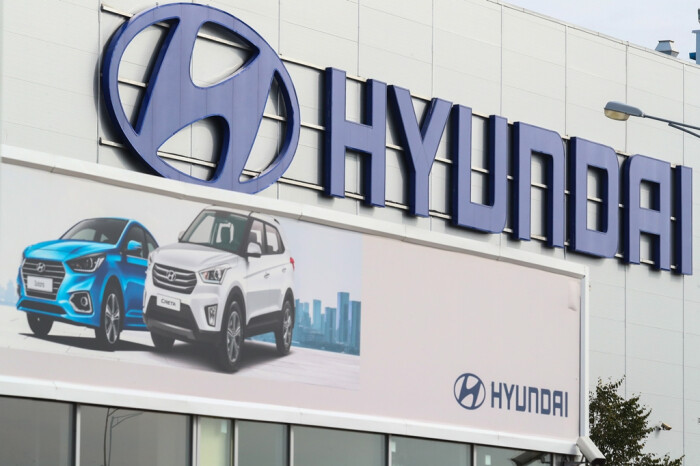
Seoul, South Korea – Kia Corporation has issued a strong rebuttal to burgeoning speculation regarding its potential return to the Russian automotive market. The denial comes in the wake of reports suggesting that the automaker's mid-to-long-term global strategy, unveiled at the recent ‘2025 CEO Investor Day,’ included plans for sales resumption in Russia.
Hyundai Motor Group, the parent company of Kia, swiftly addressed these reports, clarifying that the cited figures pertained to the broader Commonwealth of Independent States (CIS) region, explicitly excluding the Russian Federation. This clarification underscores Kia’s current stance of non-engagement in the Russian market, a position adopted following the geopolitical ramifications of the Ukraine conflict in 2022.
The company elaborated that the sales objectives outlined in the investor presentation encompassed CIS nations such as Kazakhstan and Uzbekistan, where Kia maintains active sales operations and established dealer networks. This distinction is crucial, as it highlights Kia’s commitment to markets where its business operations remain viable and unobstructed by international sanctions and logistical complexities.
Adding further credence to Kia’s denial, local Kia dealerships within Russia have also publicly stated that they have not received any directives or indications from the головной офис (head office) concerning a potential resumption of vehicle sales or the re-establishment of operational infrastructure. This lack of communication between the manufacturer and its former dealer network in Russia strongly suggests that a market re-entry is not imminent.
Industry analysts point to several significant impediments that would make a swift return to the Russian market highly challenging for Kia. Foremost among these is the absence of a functioning dealer network. Rebuilding such an infrastructure from scratch in the current economic and political climate would be a monumental undertaking, requiring substantial investment and facing considerable logistical hurdles.
Furthermore, the competitive dynamics of the Russian automotive market have undergone a radical transformation since Hyundai and Kia’s departure. Prior to their exit, both South Korean brands held significant market share, particularly in the price-sensitive B and C segments, which include popular models like the Kia Rio and Hyundai Solaris. These models thrived on a combination of competitive pricing and local assembly at their Saint Petersburg plant.
However, the vacuum left by Western and South Korean automakers has been rapidly filled by Chinese brands. Leveraging their often lower production costs and less stringent exposure to Western sanctions, Chinese manufacturers have witnessed an unprecedented surge in market share, now commanding over 60% of the Russian new car market, up from a mere 8% before the conflict. This dramatic shift signifies a highly competitive landscape where re-establishing a strong foothold would be an uphill battle for Kia, especially relying solely on imports, which would erode price competitiveness and profitability.
The context of Hyundai Motor Group’s exit from Russia in 2022 also provides crucial insight. The sale of their Saint Petersburg manufacturing facility for a symbolic 1 ruble included a buy-back option, allowing for potential re-acquisition within a two-year timeframe. While this clause sparked speculation about a future return, industry experts largely view it as a strategic measure to retain optionality amidst geopolitical uncertainty rather than a concrete plan for immediate re-entry. The buy-back option, which would have expired in 2024, was likely a prudent step to preserve potential future scenarios without committing to an immediate and potentially risky return.
The Russian automotive market has shown tentative signs of recovery after the steep decline following the 2022 conflict. However, this recovery is largely fueled by the dominance of Chinese brands, which have effectively supplanted the market share previously held by Western and South Korean manufacturers. Re-entering this altered landscape would require a significant strategic shift and a willingness to compete fiercely with established Chinese players.
An industry source familiar with the matter emphasized the complexities involved: "Kia's return to Russia is not a simple matter of setting sales targets. It necessitates a deep and intricate evaluation of the prevailing political instability, the pervasive impact of Western sanctions on supply chains and financial transactions, and the evolving industrial policies of the Russian government, which may favor domestic production or manufacturers from nations not participating in sanctions."
The source further elaborated on the challenges posed by sanctions, which could restrict access to crucial components and technologies, thereby hindering production and potentially impacting vehicle quality and features. Moreover, the reputational risks associated with operating in Russia under the current geopolitical climate are considerable for international brands.
Considering these multifaceted challenges and Kia's explicit denial, the prevailing sentiment within the automotive industry is that an imminent re-entry into the Russian market by Kia, and by extension Hyundai, remains highly improbable. The strategic focus for both South Korean automakers is likely to remain on markets with greater stability, growth potential, and fewer geopolitical headwinds. While the long-term future remains uncertain, Kia's current stance firmly indicates a strategic avoidance of the Russian market in the foreseeable future.
[Copyright (c) Global Economic Times. All Rights Reserved.]




























